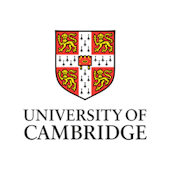Secularism, Christianity, Islam, liberalism, and democracy are among seemingly universalist worldviews, inviting any individual, community, or government to embrace them. However, they are also considered indigenous to certain geographies and populations and foreign imports to others.
My overall research agenda explores this tension between the universalism and particularism of globally appealing religious and post-religious belief and value systems by studying them ethnographically as they travel in and out of their assumed natural habitats. More specifically, as an anthropologist, I am interested in the personal experiences of individuals who embrace a universalistic ideology or belief system that they did not inherit from their grandparents, but instead choose to borrow from others and make their own, with a specific focus on Islam and Muslims.
I explore what it means to be a secular Turk in a country where political Islam is on the rise; to be an ethnic German who converted to Islam; and a Turk who converted to Christianity. I am currently working on a project about Muslim background Germans who look for ways to adopt the memory of the Holocaust as proof of their commitment to liberal democracy and empathic humanity. I examine the conditions under which such engagements are judged as genuine and sincere, or as suspect and fake.
- Article Feed
- Joined


